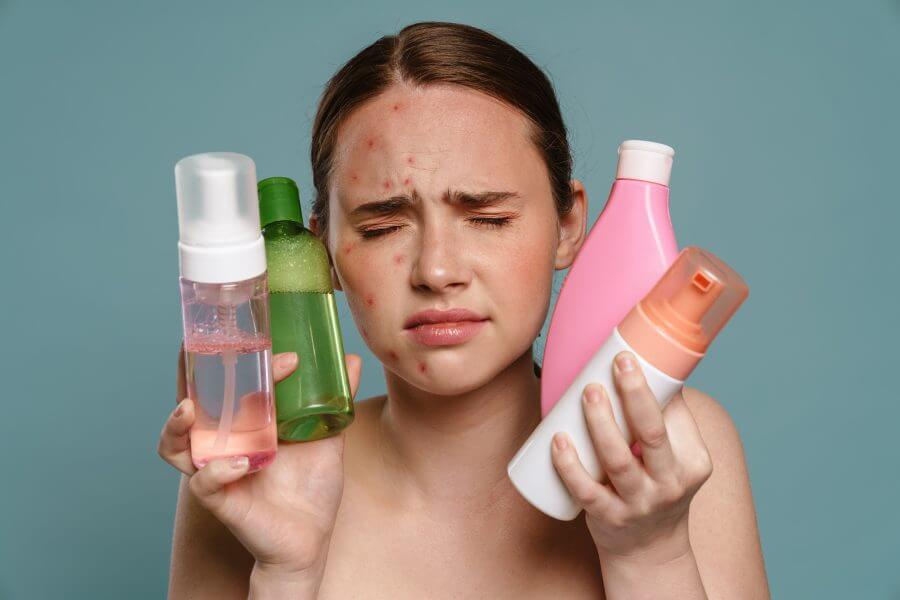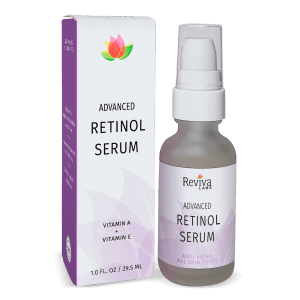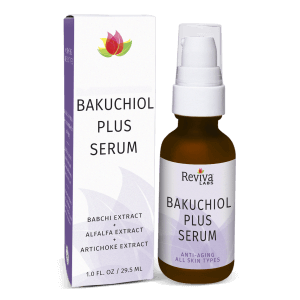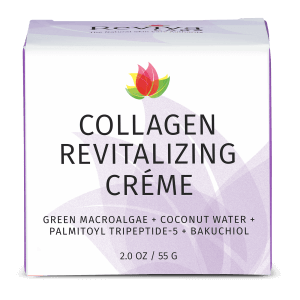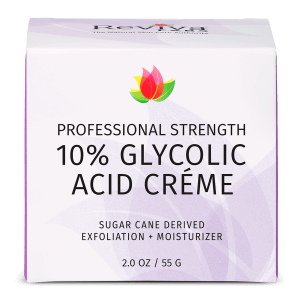Ingredients, Natural, Reviva Labs, Skin Care
Which Vitamin A Should You Use for Acne-Prone Skin?
When it comes to managing acne, Vitamin A has earned its place as a go-to ingredient in skincare. Its potent properties not only help to reduce inflammation but also promote cell turnover, leading to clearer and healthier skin. However, with various forms of Vitamin A available, it can be challenging to determine which one is best suited for acne-prone skin. Let’s explore the most effective types of Vitamin A and how they can benefit those struggling with acne.
Understanding Vitamin A and Its Derivatives
Vitamin A is an umbrella term for a group of fat-soluble retinoids, including retinol, retinal (retinaldehyde), retinoic acid, and various retinyl esters. Each of these derivatives has unique properties and effects on the skin. The most common forms used in skincare are retinol, retinal, and retinoic acid. These derivatives vary in their strength, skin penetration abilities, and potential for irritation, making it essential to choose the right one for your skin type and concerns.
Retinol: A Popular Choice for Acne
Retinol is perhaps the most well-known form of Vitamin A in over-the-counter skincare products. It’s celebrated for its ability to stimulate collagen production, enhance cell turnover, and unclog pores. For acne-prone skin, this means fewer breakouts and a reduction in the appearance of post-acne marks.
Retinol’s main advantage is its potency balanced with its relatively lower irritation potential compared to retinoic acid. It’s converted into retinal and then retinoic acid within the skin, providing effective results over time. Users typically notice improvements in their skin texture and clarity after consistent use. However, it’s essential to start with a lower concentration and gradually increase it to minimize potential irritation, such as redness or peeling.
Retinal: The Middle Ground
Retinal, also known as retinaldehyde, is one step closer to retinoic acid in the conversion process within the skin. This makes it more potent than retinol but still less irritating than direct retinoic acid. Retinal works faster than retinol, providing visible improvements in skin texture and clarity more quickly. For individuals with acne-prone skin who want quicker results but still need to be cautious about irritation, retinal can be an excellent option.
One of the benefits of retinal is its antibacterial properties, which can be particularly beneficial for acne-prone skin. By reducing the bacterial load on the skin, retinal helps to prevent new breakouts while also treating existing acne.
Retinoic Acid: The Prescription Strength
Retinoic acid, also known as tretinoin, is the most potent form of Vitamin A and is available by prescription only. Its strength makes it highly effective for treating severe acne and other skin concerns like fine lines and hyperpigmentation. Because retinoic acid doesn’t require conversion within the skin, it works more quickly and efficiently than its over-the-counter counterparts.
However, the increased potency of retinoic acid comes with a higher potential for irritation. Users may experience redness, peeling, and dryness, especially during the initial stages of use. Dermatologists often recommend starting with a lower concentration and gradually increasing the frequency of application to allow the skin to build tolerance.
Balancing Efficacy and Tolerance
Choosing the right form of Vitamin A for acne-prone skin involves balancing efficacy with tolerance. Individuals with sensitive skin may find retinol or retinal to be effective yet gentler options, while those with more resilient skin might benefit from the stronger effects of retinoic acid.
It’s important to incorporate Vitamin A into your skincare routine slowly. Start with a low concentration and apply it every other night to gauge your skin’s reaction. Gradually increase the frequency as your skin builds tolerance. Always follow up with a moisturizer to help mitigate any dryness or irritation, and don’t forget to apply sunscreen daily, as Vitamin A can increase your skin’s sensitivity to the sun.
The Role of Vitamin A in Skincare
Vitamin A is a multifaceted ingredient that offers numerous benefits beyond acne treatment. It helps to improve overall skin texture, reduce the appearance of fine lines and wrinkles, and even out skin tone. For acne-prone individuals, these additional benefits can enhance the overall appearance and health of the skin, making Vitamin A a valuable component of a comprehensive skincare routine.
Scientific Evidence Supporting Vitamin A for Acne
Numerous studies have demonstrated the effectiveness of Vitamin A in treating acne. According to a study published in the Journal of the American Academy of Dermatology, retinoids, including retinoic acid and retinol, significantly reduce acne lesions and improve skin appearance (Source: https://www.jaad.org/article/S0190-9622(18)32316-7/fulltext). The study highlights that retinoids not only help to clear acne but also prevent new lesions from forming, making them a cornerstone in acne management.
Incorporating Vitamin A into Your Routine
To effectively incorporate Vitamin A into your skincare routine, start with a gentle cleanser to ensure your skin is clean and free from impurities. Apply a pea-sized amount of your chosen Vitamin A product to your face, avoiding the eye area. Follow up with a hydrating moisturizer to lock in moisture and reduce the potential for irritation. In the morning, always apply a broad-spectrum sunscreen with at least SPF 30 to protect your skin from UV damage.
Consistency is key when using Vitamin A products. It can take several weeks to a few months to see significant improvements, so patience is essential. If you experience persistent irritation, consult with a dermatologist who can provide personalized advice and potentially adjust your treatment plan.
Finding the Right Vitamin A for You
Vitamin A is a powerful ally in the fight against acne. Whether you choose retinol, retinal, or retinoic acid, each form offers unique benefits that can help to clear your skin and improve its overall health. By understanding the differences between these derivatives and incorporating them thoughtfully into your skincare routine, you can achieve clearer, healthier skin over time. Always remember to start slowly, use a moisturizer, and protect your skin with sunscreen to maximize the benefits and minimize any potential side effects.



